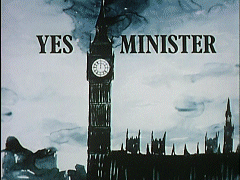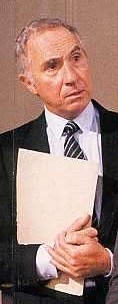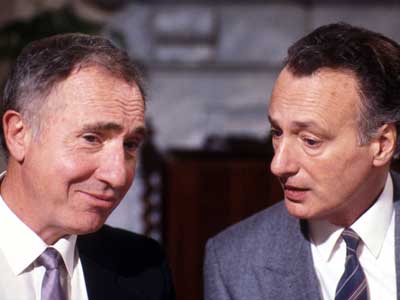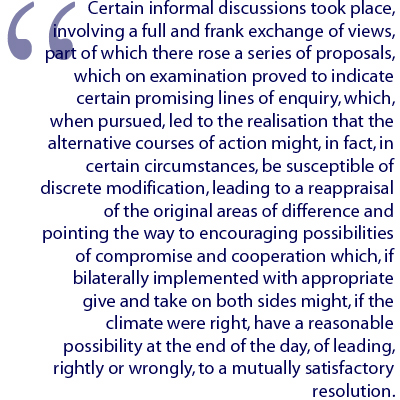
It’s a bit of a yawn, I admit… A real snoozer.
(Bland. Stale. Unagitated. Twittery. Unglamorous. Insipid. Flat. Dull. Banausic. Ghastly. Call it what you want.)
Yet, not all is quite for the birds.
I was just strolling around my inbox to confirm that the past year has been particularly concerned with bureaucracies. Of any kind, really: from universities or schools to city administrations, and European, even world-wide organisations of any kind; the White House and non-governmental associations included.

This, then, must be an appropriate moment to dig deep in the past of humanity and re-introduce some crucial thinking on bureaucracy along the principles of Peter and Dilbert.
(If you don’t like Dilbert, or Peter, go here. If you like Dilbert and know his principle as well as Peter’s, get your mind boggled. If you don’t know Dilbert, descend into the eternal grounds and go here and here before you return.)
Bureaucracy is a sociological concept often associated with public administration, even though it describes a hierarchical form of organising the execution and enforcement of rules that is also widely applied in economy, civil society, religion and elsewhere.
The word has its etymological roots in the French «bureau», referring to a public office, and the Greek «kratos», meaning «power» or «rule», and basically means «office rule» or «official power». Already in 18th-century France discourses — that we know all too well from our days — existed:
«We have an illness in France which bids fair to play havoc with us; this illness is called bureaumania».
Jean Claude Marie Vincent de Gournay, French economist (1712-1759)
Gournay is considered one of the first major critics of bureaucracies which he often referred to as the fourth or fifth form of government. Since then, the controversy about bureaucracy has mainly remained the same in suggesting that, left uncontrolled and unchecked, bureaucracies are bound to become increasingly perverse, corrupt and self-serving, rather than serving society and the common good.
«[…] indeed the public interest appears to have been established so that offices might exist.»
Friedrich Melchior Baron von Grimm, German writer and diplomat (1723-1807)

Until today, the connotation of «bureaucracy» is overwhelmingly negative — who wants to be called a «bureaucrat»? Administrator, civil servant, public servant, city clerk, director general: yes, bureaucrat: never!
Bureaucracies are condemned as (choose your own set): anti-liberal, undemocratic, totalitarian, hostile to liberty, paralysing, inefficient, wasteful, unfriendly, unethical, unfair, overly complicated, pedantic, rigid, slow and slack. And who hasn’t encountered an unjust ruling of administration, based on a rule that makes little or no sense? Yet:
«Such rules are indispensable if public administration is not to slip out of the hands of the top executives and degenerate into the supremacy of subordinate clerks.»
Mises, L. (1944): Bureaucracy. University Press, Yale. Page 126. (pdf)
This is what Austrian economist Ludwig von Mises in 1944 suggested, a claim vividly supported by Günter Verheugen not too long ago.
But what are bureaucracies?
According to Merriam-Webster, bureaucracy means
«1: a) a body of nonelective government officials
1: b) an administrative policy-making group
2: government characterized by specialization of functions, adherence to fixed rules, and a hierarchy of authority
3: a system of administration marked by officialism, red tape, and proliferation.»BTW: MW claims that «cratie» stands for «cracy»
In contrast, have a look at the definition provided by MSN Encarta (in particular point 4):
«1. administrative system: an administrative system, especially in a government, that divides work into specific categories carried out by special departments of nonelected officials
2. officials collectively: the nonelected officials of an organization or department
3. state or organization: a state or organization operated by a hierarchy of paid officials
4. frustrating rules: complex rules and regulations applied rigidly»

Karl Marx suggested that bureaucracy controls, co-ordinates and governs the development, production, distribution and consumption of wealth and is maintained by the surplus of such wealth production. It has, in other words, very little interest in changing the system it protects and is protected by (a problem seemingly rising to the surface of modern discourses).
Max Weber has studied the sociology of politics and government and in particular the bureaucratisation of society extensively and described the ideal bureaucracy by a set of seven conditions, which are:
- official business is conducted on a continuous basis
- official business is conducted with strict accordance to the following rules:
- the duty of each official to do certain types of work is delimited in terms of impersonal criteria
- the official is given the authority necessary to carry out his assigned functions
- the means of coercion at his disposal are strictly limited and conditions of their use strictly defined
- every official’s responsibilities and authority are part of a vertical hierarchy of authority, with respective rights of supervision and appeal
- officials do not own the resources necessary for the performance of their assigned functions but are accountable for their use of these resources
- official and private business and income are strictly separated
- offices cannot be appropriated by their incumbents (inherited, sold, etc.)
- official business is conducted on the basis of written documents
Criticism of these principles are wide-ranging and suggest that, crucially, real bureaucracies could never be as ideal as Weber’s model and thus it is not adequate to describe bureaucracies with all their problems ranging from conflicts of competence, unclear responsibilities, impersonalisation of staff, corruption, nepotism, oligarchic behaviours, overspecialisation, missing flexibility to deal with exceptions, lack of critical thinking, zealotry… to name but a few.
too complex
without
addressing
complexity.
To many, the (mis-) interpretation of Weber’s thinking in the development of modern public service has led to a Catch-22: As bureaucracy creates more and more simplistic rules to deal with new or different situations one-dimensionally, very legalistically and with little common sense, the complexity of the spiderweb of rules increases without the capacity to deal with the rising complexity of reality at all — consequently, coordination and overview diminish, contradictory rules develop, and essentially administration becomes chaotic, arbitrary and discriminating.
So let’s have a look inside this system of bureaucracy at the people who work there:

According to Weber, a bureaucratic official is personally free and appointed to his position on the basis of conduct; exercises the authority delegated to him in accordance with impersonal rules; enlists his loyalty on behalf of the faithful execution of his official duties; is appointed and placed dependent upon his technical qualifications; does administrative work as a full-time occupation which is rewarded by a regular salary and prospects of advancement in a lifetime career.
An official must exercise his judgment and his skills, but his duty is to place these at the service of a higher authority.
(Source)
In 1968, the hierarchiologist Peter Laurence formulated the «Peter Principle»:
«In a hierarchy every employee tends to rise to his level of incompetence.»
Peter, Laurence and Hull, Raymond (1968): The Peter Principle: Why things always go wrong. Souvenir Press, London: Reprint 1994.
This principle has been widely quoted and satirised, and often been misunderstood: Peter and Hull are not suggesting that every civil servant is incompetent. They are merely claiming that due to the wide-spread practice of promotion based on success in the current (soon: previous) task, people tend to get stuck in positions for which they are not fully competent any more. After some time, this principle leads to a «Hierarchy of the Incompetent» — if you leave all other processes and influences on promotions and positions aside (some of which may speed up this process, others delay it).
With the «Peter Pyramid», Peter continued his work by expanding the «Peter Principle» (which applies to individuals in bureaucracies) to organisations and the system itself. (Peter, Laurence (1986): The Peter Pyramid: Or, Will We Ever Get the Point? William Morrow & Company, New York.)
Related to the work of Peter and Hull is the thinking of the German sociologist Robert Michels who invented the «Iron Law of Oligarchy» by observing that «all forms of organization, regardless of how democratic or autocratic they may be at the start, will eventually and inevitably develop into oligarchies.» In consequence, Michels claims, large organisations and democracy are incompatible. The now dysfunct «International Typographical Union» is one of the few (apparent) exceptions to this iron rule.
Scott Adams took a combination of the «Peter Principle» and the «Iron Law of Oligarchy» one step further and invented the «Dilbert Principle» which suggests that:
«Companies tend to systematically promote their least-competent employees to management, in order to limit the amount of damage that they’re capable of doing.»
Adams, Scott (1996): The Dilbert Principle. Harper Business, New York.
Clearly: BOCTAOE! Yet: How many examples do you know?
According to my inbox: too many.
∞
